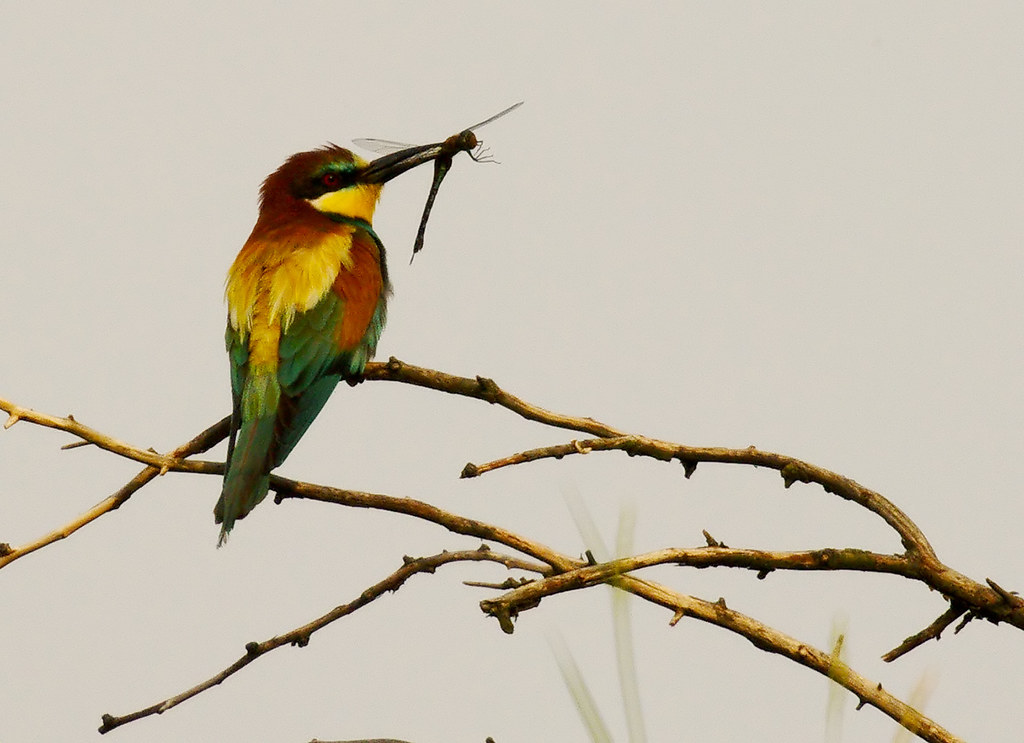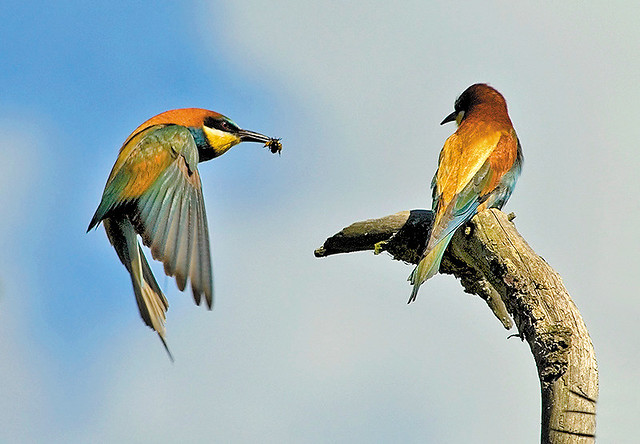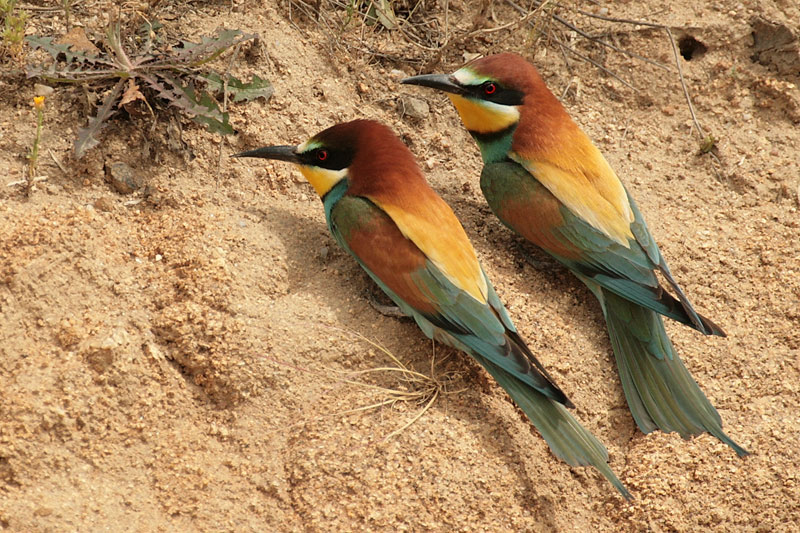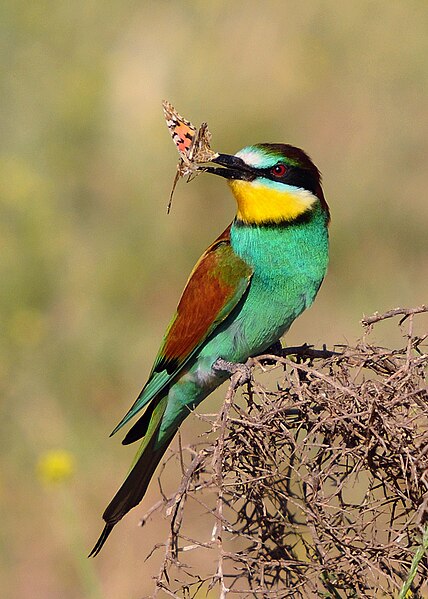
A pair of European Bee-eaters (Merops apiaster), feeding, Ariège, France. The female (in front) awaits the offering which the male will make: photo by Pierre Dalous, 28 May 2012
he feeds the biggest bees
and dragonflies
and wasps
and hornets
to the beloved one
Pair of European Bee-eaters (Merops apiaster), Balearic Islands, Spain: photo by Conselleria de Medi Ambient i Mobilitat, Govern des Illes Balears, 1 May 2011 (El Centro de Turismo Ornitológico de las Islas Baleares)

European Bee-eater (Merops apiaster), Magyarpolány, Veszprém, Hungary. It has caught a dragonfly: photo by bkaree1, 31 July 2010

European Bee-eater (Merops apiaster), Morava, Czech Republic: photo by Martin Mecnarowski, 1 August 2009
European Bee-eater (Merops apiaster), southeastern Turkey: photo by Dûrzan Cîrano, 14 August 20111

European Bee-eater (Merops apiaster), male, has caught a male Common Clubtail (Gomphus vulgatisimus): photo by Mr. Dinkelman, 2 June 2011

European Bee-eaters (Merops apiaster), Monte do Palo, Lago de Santo André, Portugal: photo by Joaquim Coelho, 15 April 2006

European Bee-eaters (Merops apiaster), Portugal: photo by Henrique Oliveira Pires, 4 May 2007

European Bee-eater (Merops apiaster), southeastern Turkey: photo by Dûrzan Cîrano, 21 July 2011

European Bee-eaters (Merops apiaster), Spain: photo by Raúl Baena, 13 April 2009

European Bee-eaters (Merops apiaster), Urbanización Los Encinares de Sanlúcar la Mayor, Andalusia, Spain: photo by Raúl Baena, 4 May 2008

European Bee-eaters (Merops apiaster), Spain: photo by Raúl Baena, 20 May 2006

European Bee-eater (Merops apiaster), Spain: photo by Raúl Baena, 11 April 2009



There's a pleasure in the recognition that the gift is isn't exclusively a human phenomenon.
ReplyDeleteThanks, TC
Feeding the beloved one, such a nice thought...
ReplyDeletecrumbs, crumbs on the
ReplyDeletePath
gave me a Red Balloon
so Round and Light
no Strings
attached
but a Thread woven.
Branches caught it my beloved
ate it
How many crumbs make a
daily
Meal?
Birds! Beautiful birds. I could watch them forever.
ReplyDeleteHow many crumbs make a
ReplyDeletedaily
Meal?
This is the question of every day for the European Bee-eater.
Merops apiaster consumes (on the average) 250 bees per day.
"Studies show" that the individuals of this remarkable species turn out to be more robust if they have a varied diet -- topping off the daily intake of bees with a variety of high-energy snacks, dragonflies being considered an especially fortifying delicacy.
Courtship season starts about this time of year, in Spain and Portugal, as the birds return from Africa and begin the process of mating, nesting in sandy cliff banks and continuing the perpetuation of their brilliant species.
See:
El Abejaruco
At 0:12 of this video the male Bee-eater bashes a bug to death on a power line. It is this behaviour -- banging the prey on something hard until it is senseless -- that renders the Bee-eater's courtship gifts something other than a mean joke. After all one doesn't offer one's true love a candy box full of stingers. These beauteous creatures are monogamous by the way. So every stunned bug he brings her may be said to be potentially good for a lifetime.
colors life and beloved...
ReplyDelete